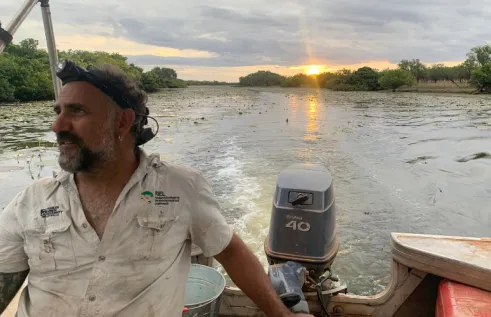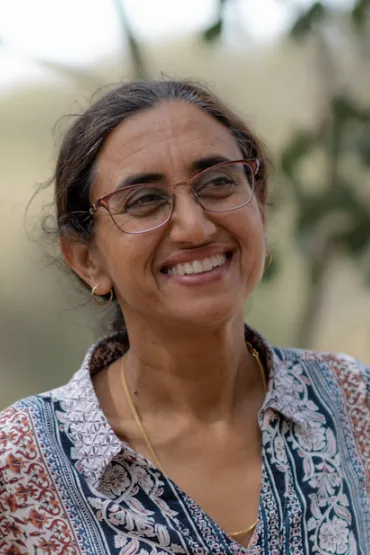RIEL seminar series
Ecosystem services and emerging market opportunities
| Presenter | Assoc Prof Kamaljit K. Sangha | |
|---|---|---|
| Date/Time |
to
|
|
| Contact person | E: riel.outreach@cdu.edu.au | |
| Location |
Yellow 1 level 1 room 33 at CDU Casuarina Campus And online via Zoom (see below for Zoom link) All times are ACST |
|
| Open to | Public | |
Assoc Prof Kamaljit K. Sangha works as an Ecological Economist at the Research Institute for the Environment and Livelihoods at Charles Darwin University. Her work is mainly focused on Indigenous communities across northern Australia, especially on linking ecosystem services with the well-being of remote communities. Her research includes developing nature-based economies and assessing the value of ecosystem services, particularly for the Indigenous Peoples and local communities context.
Ecosystem services are the benefits that humans obtain from ecosystems, often in combination with other inputs. Recently, governments and policymakers have become increasingly aware that economies are approximately 50% directly dependent on nature and that the decline in the health and functioning of natural systems threatens economic output. Consequently, the focus is shifting toward investing in nature to protect, restore, and manage natural systems, as highlighted in the landmark United Nations Environment Programme (UNEP) State of Finance for Nature reports.
In Australia, the carbon market clearly demonstrates the success of nature-based economic opportunities, which are expected to grow under the new Nature Repair Bill passed in December 2023. With over 15 years of experience working on ecosystem services, during this seminar Kamaljit will discuss ecosystem service-related frameworks, opportunities, and challenges from Indigenous perspectives.
Kamaljit has been involved in several United Nations-led initiatives including as lead author of the Intergovernmental Science-Policy Platform on Biodiversity and Ecosystem Services (IPBES) Nexus Assessment; the upcoming seventh Global Environment Outlook (GEO-7) report from UNEP; member of the Indigenous Peoples and Local Communities Taskforce; and co-chair of the Local Economies, Communities and Nature Specialist Group led by the International Union for Conservation of Nature’s Commission on Environmental, Economic and Social Policy.
Related Events

Trophic dynamics of free-flowing tropical rivers
Colton Perna's PhD research explores how river flows and flooding shape freshwater fish communities in tropical rivers, using fatty acids to track how hydrology influences food webs and nutritional pathways. His findings highlight the critical importance of river flow and floodplain connectivity in sustaining productive aquatic ecosystems.
Read more about Trophic dynamics of free-flowing tropical rivers
STATE OF THE DIS-UNION: Media Literacy in the age of AI
The CDU Library is hosting a free panel discussion featuring Northern Territory journalists who will discuss media literacy, truth, and storytelling in the AI era. Attendees can learn how AI is transforming media, ask questions, and improve their understanding of navigating information in today's landscape.
Read more about STATE OF THE DIS-UNION: Media Literacy in the age of AI
HDR Conference paper and article writing
This workshop supports HDR candidates in developing strong academic writing skills for both conference presentations and journal publications. Participants will learn how to structure a compelling conference paper, craft clear and effective academic prose, and transform research findings into publishable articles.
Read more about HDR Conference paper and article writing
